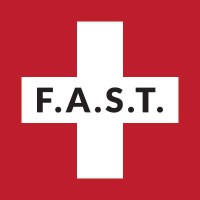Recognizing Signs of a Stroke – and How to Respond

Suffering from a stroke can be a potentially life-threatening situation. It is imperative that medical attention is sought immediately. However, sometimes individuals don’t realize they’re experiencing a stroke, nor do family, friends, or bystanders. That is why it is so important to recognize the signs of a stroke and what you should do if you think someone is having one.
Remembering to act FAST
One of the easiest mnemonic devices to help you recognize the signs of a stroke is: FAST.
- F stands for face. Ask the person to smile – if one side of their face droops or sags, they could be experiencing a stroke.
- A stands for arms. Ask the person to raise both arms out in front of them – if they’re unable to keep one of their arms raised and it keeps floating downward, it could be a sign of a stroke.
- S stands for speech. Ask the person to repeat a short sentence – if their words are slurred or they have trouble speaking, it could be another red flag.
- T stands for time. If you notice any of the above signs, call 9-1-1 immediately and get the person to the hospital.
Other warning signs may include:
- Sudden onset of a severe headache
- Dizziness or poor balance
- Confusion
- Vision problems such as blurriness
- Weakness on one side of the body
The Importance of Responding Quickly
If you notice any symptoms of a potential stroke, take note of the time they started. If the drug t-PA is administered within 3 hours of the start of symptoms, it can help to dissolve blood clots and improve recovery. However, you must act quickly so that the person can be taken to the hospital, evaluated, and treatment started within that 3-hour time frame.
Understanding Risk Factors
While there are no ways to guarantee you will never experience a stroke, you can actively manage risk factors. For instance, keeping high blood pressure and high cholesterol under control, quitting smoking, and managing diabetes can all help decrease risk. So can getting treatment for heart disease and understanding any family history of stroke.
Get regular checkups to monitor your health and treat any conditions that may develop. If you are on medication, make sure you remember to take it exactly as prescribed. Talk to your doctor about any concerns or risk factors you may have that could increase your chances of experiencing a stroke. Also, make sure that you and your loved ones know the warning signs and how to respond in order to enhance recovery.
Need help remembering to take medication or assistance with scheduling or getting to appointments? Working with an in-home caregiver from Always Best Care can help. They can assist you with a wide range of daily tasks and support you in staying active to promote better health. Call Always Best Care at (855) 470-2273 to learn more or schedule a free consultation.





